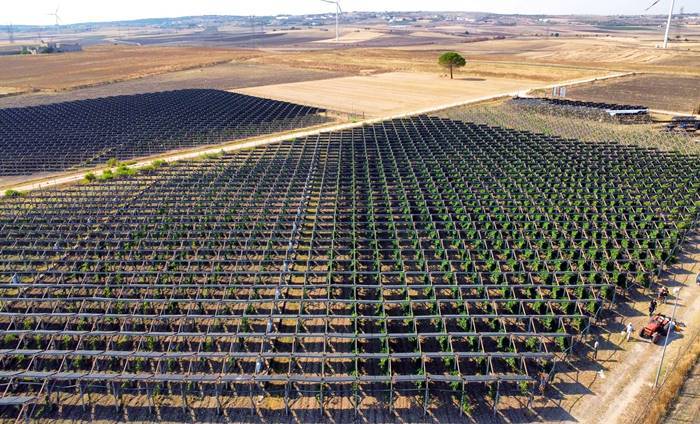Côtes-du-Rhône Vineyards to Ban Agrivoltaics by 2026 Amid Quality and Tourism Concerns
French wine authorities cite lack of data on grape impact and fear solar panels could harm the region’s iconic landscape
2025-10-28

A decision has been made to move forward with a ban on agrivoltaics in the AOC Côtes-du-Rhône vineyards, according to information confirmed by Agra Presse and the wine industry publication Vitisphere. Laurent Jeanneteau, director of the Côtes du Rhône winegrowers’ union, stated that the ban has been approved by the French National Institute of Origin and Quality (INAO). The union’s defense and management organization (ODG), which has expressed skepticism about agrivoltaics, submitted a formal request for the ban to the public institution earlier this year.
The INAO’s national committee for wine appellations approved the request in September, Jeanneteau said. This approval now allows for a standard clause that prohibits agrivoltaics within the Côtes-du-Rhône appellation. The next step will be to include this clause in the official specifications for both Côtes-du-Rhône and Côtes-du-Rhône Villages wines, with implementation expected as early as 2026. Jeanneteau also indicated that the prestigious crus of the Côtes-du-Rhône are likely to follow suit.
The ODG cited two main reasons for seeking the ban. First, they argue that agrivoltaic systems—solar panels installed above crops—have not shown convincing results in terms of grape yield or quality. The organization says there is still a lack of long-term data on how these installations affect vineyards. Second, there are concerns about the image of the region. The ODG questions how wine tourism can be promoted if solar panels are visible throughout the landscape, which is central to the area’s appeal.
The move comes as agrivoltaics have gained attention in France and other wine-producing countries as a way to combine renewable energy production with agriculture. Proponents say solar panels can provide shade and help protect vines from extreme weather, while generating electricity. However, critics in traditional wine regions worry about changes to the landscape and potential impacts on grape quality.
The decision by the Côtes-du-Rhône winegrowers’ union and the INAO sets a precedent for other French wine regions considering similar measures. The process to update the official production rules is expected to be completed in time for the 2026 vintage. For now, the debate over agrivoltaics in French vineyards continues, with both environmental and cultural factors at play.
Founded in 2007, Vinetur® is a registered trademark of VGSC S.L. with a long history in the wine industry.
VGSC, S.L. with VAT number B70255591 is a spanish company legally registered in the Commercial Register of the city of Santiago de Compostela, with registration number: Bulletin 181, Reference 356049 in Volume 13, Page 107, Section 6, Sheet 45028, Entry 2.
Email: [email protected]
Headquarters and offices located in Vilagarcia de Arousa, Spain.